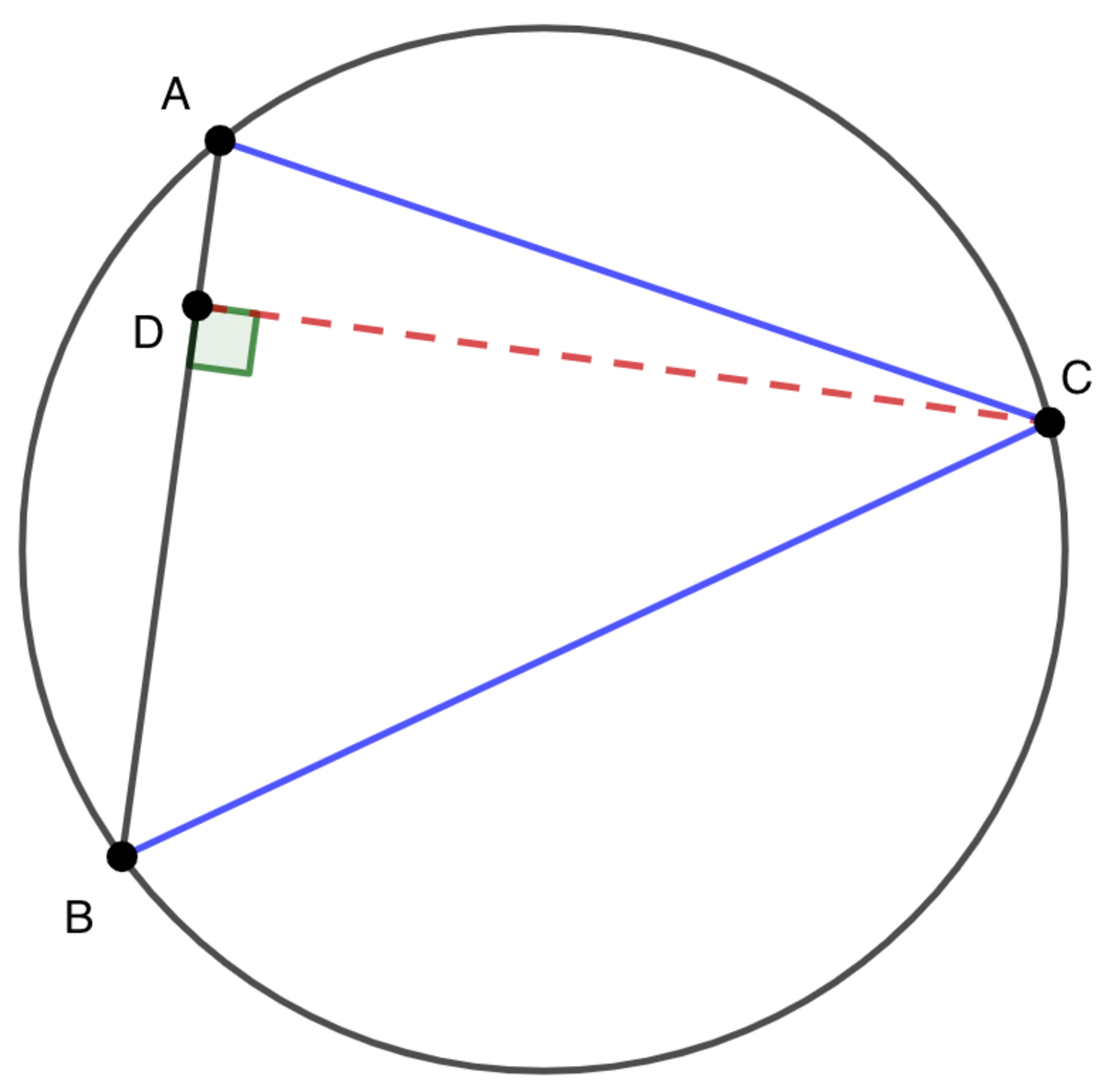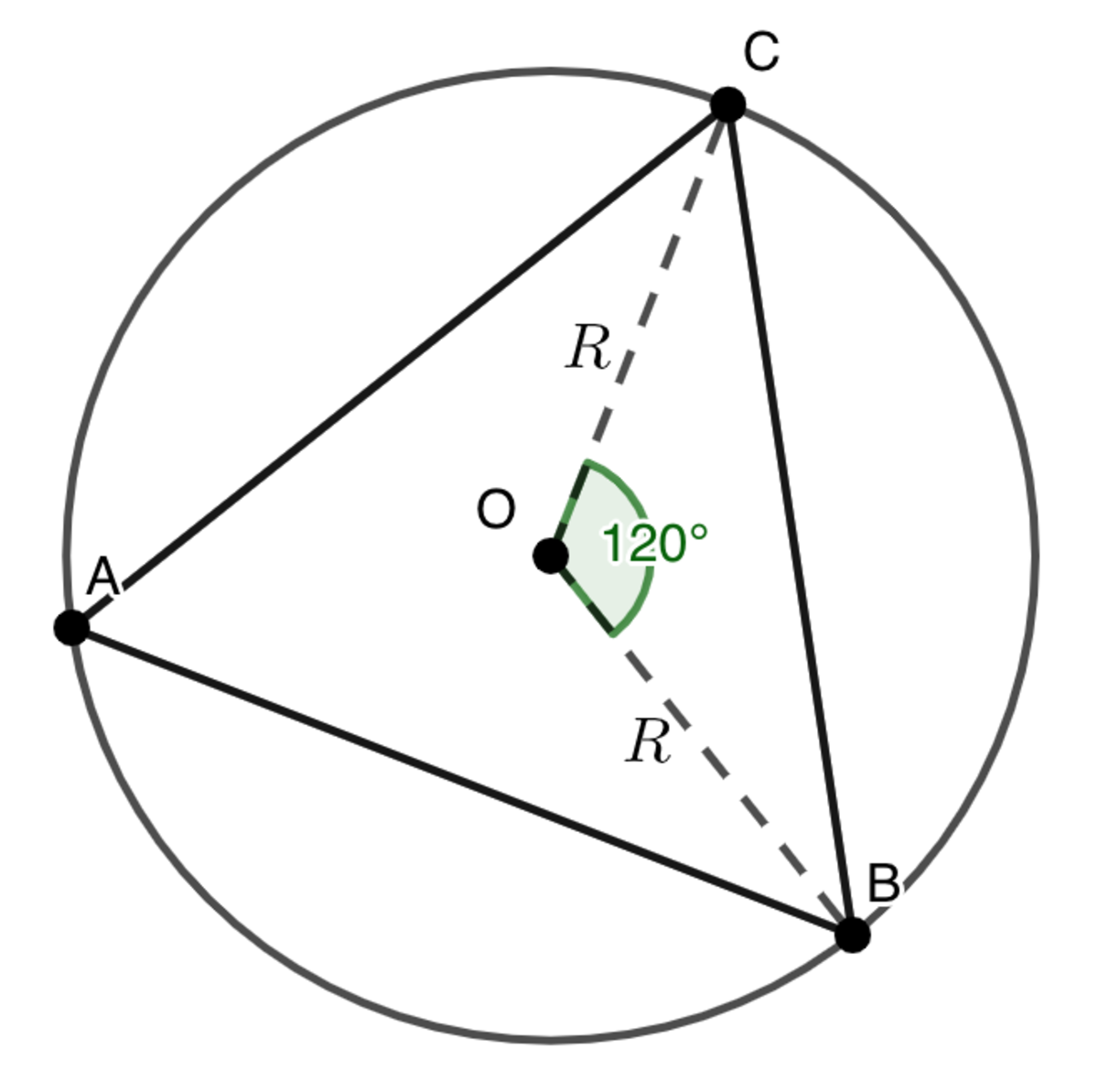Triangle Inscribed In Circle
There is a circle of radius . I am going to pick 3 random points on the circumference of the circle.
The 3 points will be joined up, such that they form a triangle.
What is the probability (out of 100) that the triangle formed will be at least 50% of the entire circle?
The answer is 0.
This section requires Javascript.
You are seeing this because something didn't load right. We suggest you, (a) try
refreshing the page, (b) enabling javascript if it is disabled on your browser and,
finally, (c)
loading the
non-javascript version of this page
. We're sorry about the hassle.
Let A and B be fixed on a circle, Let C be a third point on the circle and let D be on A B such that A B ⊥ C D . See the diagram below. The area of
△
A
B
C
is
2
1
A
B
⋅
C
D
. We now attempt to maximize this area. For fixed
A
and
B
, this will be maximized when
C
D
is at it's maximum length. This will occur when
C
lies along the same diameter as the midpoint of
A
B
-- in other words, when
C
D
is the perpendicular bisector of
A
B
. This implies that
△
A
B
C
is isosceles and, therefore,
∠
A
≅
∠
B
. By symmetry, it must be that
∠
A
≅
∠
B
≅
∠
C
and
△
A
B
C
is equilateral.
The area of
△
A
B
C
is
2
1
A
B
⋅
C
D
. We now attempt to maximize this area. For fixed
A
and
B
, this will be maximized when
C
D
is at it's maximum length. This will occur when
C
lies along the same diameter as the midpoint of
A
B
-- in other words, when
C
D
is the perpendicular bisector of
A
B
. This implies that
△
A
B
C
is isosceles and, therefore,
∠
A
≅
∠
B
. By symmetry, it must be that
∠
A
≅
∠
B
≅
∠
C
and
△
A
B
C
is equilateral.
Assuming that △ A B C is equilateral, we calculate its area. Since the equilateral triangle has side length 3 R (if you're not sure why, apply law of cosines to △ O B C in the diagram below). Thus,
Area
(
△
A
B
C
=
2
1
(
A
C
)
(
B
C
)
sin
∠
C
=
2
1
(
3
R
)
(
3
R
)
sin
6
0
∘
=
2
3
R
2
⋅
2
3
=
4
3
3
R
2
Thus,
Area
(
△
A
B
C
=
2
1
(
A
C
)
(
B
C
)
sin
∠
C
=
2
1
(
3
R
)
(
3
R
)
sin
6
0
∘
=
2
3
R
2
⋅
2
3
=
4
3
3
R
2
Note that 4 3 3 < 4 3 ⋅ 2 < 2 3 < 2 π . This means that 4 3 3 R 2 < 2 π R 2 .
We have just shown that the largest possible inscribed triangle is smaller than 5 0 % of the whole circle. So 0 % of inscribed triangles are at least half the circle's area.